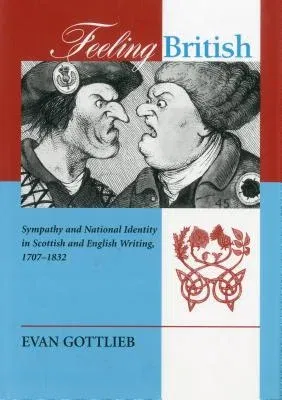Evan Gottlieb
(Author)Feeling British: Sympathy and National Identity in Scottish and English Writing 1707-1832Hardcover, 1 May 2007

Qty
1
Turbo
Ships in 2 - 3 days
In Stock
Free Delivery
Cash on Delivery
15 Days
Free Returns
Secure Checkout

Part of Series
Bucknell Studies in Eighteenth Century Literature and Cultur
Part of Series
Bucknell Studies 18th C L
Print Length
274 pages
Language
English
Publisher
Bucknell University Press
Date Published
1 May 2007
ISBN-10
1611482801
ISBN-13
9781611482805
Description
Product Details
Author:
Book Format:
Hardcover
Country of Origin:
US
Date Published:
1 May 2007
ISBN-10:
1611482801
ISBN-13:
9781611482805
Language:
English
Pages:
274
Publisher: